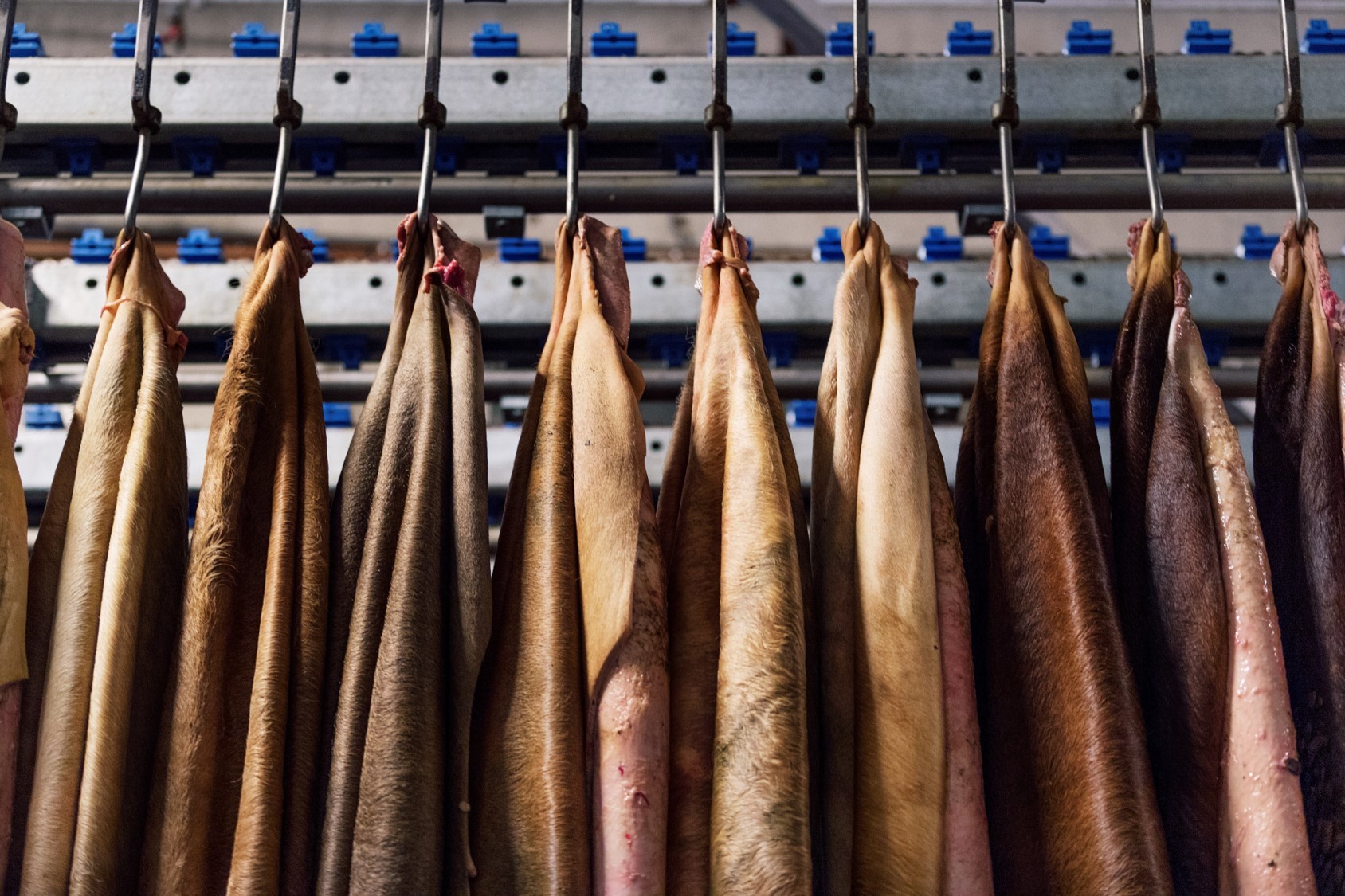Norilia's hide and skin production
Norilia handles 90% of Norwegian cattle hides and 80% of skins from Norwegian lamb, sheep, and goats. Norilia's position as the market leader provides a unique starting point for quality assurance throughout the entire production process – from farms, via the slaughterhouses, to our top modern processing facility at Skjeberg in Østfold.

Photo: Sune Eriksen
A fantastic starting point
Norwegian farmers care for their animals: they have small herds, a high level of knowledge about animal husbandry, and use relatively little medication. Barbed wire is banned in Norwegian fences, meaning that Norwegian cattle hides have no barbed wire damage.
A unique process that secures quality
A unique feature of the Norilia process is that fresh hides are cooled down rapidly after skinning. This rapid chilling, in addition to quality labor by the farmers and the fact that all Norwegian hides are machine pulled, is one of the key factors that secures the high quality that Norwegian hides are known for. The uninterrupted cooling from slaughter to delivery at Norilia's hide plant at Skjeberg provides the best foundation for further refinement at the processing facility.
Modern facilities for high-quality hides and skins
Norilia's hide and skin processing facility at Skjeberg was opened in 2012. This facility is one of Europe's most modern hide and skin refinement facilities, where physically demanding labor is replaced or supported with technical solutions. Employees of the facility have a continuous focus on quality and development.
A process that fits like a glove for customers' needs
Hides are fat-trimmed and classified at Norilia Skjeberg before they go on an overhead conveyor to the chilling room. Hides that are sold fresh are packed straight from the chilling room and transported with chilled transport to our customers. Hides that are salted are taken from the chill room, mechanically salted, and stored in a draining storage for minimum 14 days. Afterwards, all excess salt is removed and hides and skins are packed on pallets before being shipped out to customers. Almost 99% of the salt is then recycled, which contributes to a more sustainable process.








